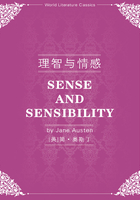IT WAS IN Delhi that I met Rutherford again. We had been guests at a Viceregal dinner-party, but distance and ceremonial kept us apart until the turbaned flunkeys handed us our hats afterwards.
"Come back to my hotel and have a drink," he invited.
We shared a cab along the arid miles between the Lutyens still-life and the warm, palpitating motion picture of Old Delhi. I knew from the newspapers that he had just returned from Kashgar. His was one of those well-groomed reputations that get the most out of everything;any unusual holiday acquires the character of an exploration, and though the explorer takes care to do nothing really original, the public does not know this, and he capitalizes the full value of a hasty impression. It had not seemed to me, for instance, that Rutherford's journey, as reported in the press, had been particularly epoch-******;the buried cities of Khotan were old stuff, if any one remembered Stein and Sven Hedin.
I knew Rutherford well enough to chaff him about this, and he laughed. "Yes, the truth would have made a better story," he admitted cryptically.
We went to his hotel room and drank whisky."So you did search far Conway?" I suggested when the moment seemed propitious.
"Search is much too strong a word,"he answered. "You can't search a country half as big as Europe for one man. All I can say is that I have visited places where I was prepared to come across him or to get news of him. His last message, you remember, was that he had left Bangkok for the northwest. There were traces of him up-country for a little way, and my own opinion is that he probably made for the tribal districts on the Chinese border. I don't think he'd have cared to enter Burma, where he might have run up against British officials. Anyhow, the definite trail, you may say, peters out somewhere in Upper Siam, but of course I never expected to follow it that far."
"You thought it might be easier to look for the valley of Blue Moon?"
"Well, it did seem as if it might be a more fixed proposition. I suppose you glanced at that manuscript of mine?"
"Much more than glanced at it. I should have returned it, by the way, but you left no address."
Rutherford nodded. "I wonder what you made of it?"
"I thought it very remarkable—assuming, of course, that it's all quite genuinely based on what Conway told you."
"I give you my solemn word for that. I invented nothing at all—indeed, there's even less of my own language in it than you might think. I've got a good memory, and Conway always had a way of describing things. Don't forget that we had about twenty-four hours of practically continuous talk."
"Well, as I said, it's all very remarkable."
He leaned back and smiled. "If that's all you're going to say, I can see I shall have to speak for myself. I suppose you consider me a rather credulous person. I don't really think I am. People make mistakes in life through believing too much, but they have a damned dull time if they believe too little. I was certainly taken with Conway's story—in more ways than one—and that was why I felt interested enough to put as many tabs on it as I could—apart from the chance of running up against the man himself."
He went on, after lighting a cigar. "It meant a good deal of odd journeying, but I like that sort of thing, and my publishers can't object to a travel book once in a while. Altogether I must have done some thousands of miles—Baskal, Bangkok, Chung-Kiang, Kashgar—I visited them all, and somewhere inside the area between them the mystery lies. But it's a pretty big area, you know, and all my investigations didn't touch more than the fringe of it—or of the mystery either, for that matter. Indeed, if you want the actual down-right facts about Conway's adventures, so far as I've been able to verify them, all I can tell you is that he left Baskul on the twentieth of May and arrived in Chung-Kiang on the fifth of October. And the last we know of him is that he left Bangkok again on the third of February. All the rest is probability, possibility, guesswork, myth, legend, whatever you like to call it."
"So you didn't find anything in Tibet?"
"My dear fellow, I never got into Tibet at all. The people up at Government House wouldn't hear of it;it's as much as they'll do to sanction an Everest expedition, and when I said I thought of wandering about the Kuen-Luns on my own, they looked at me rather as if I'd suggested writing a life of Gandhi. As a matter of fact, they knew more than I did. Strolling about Tibet isn't a one-man job;it needs an expedition properly fitted out and run by some one who knows at least a word or two of the language. I remember when Conway was telling me his story I kept wondering why there was all that fuss about waiting for porters—why didn't they simply walk off? I wasn't very long in discovering. The Government people were quite right—all the passports in the world couldn't have got me over the Kuen-Luns. I actually went as far as seeing them in the distance, on a very clear day—perhaps fifty miles off. Not many Europeans can claim even that."
"Are they so very forbidding?"
"They looked just like a white frieze on the horizon that was all. At Yarkand and Kashgar I questioned every one I met about them, but it was extraordinary how little I could discover. I should think they must be the least-explored range in the world. I had the luck to meet an American traveler who had once tried to cross them, but he'd been unable to find a pass. There are passes, he said, but they're terrifically high and unmapped. I asked him if he thought it possible for a valley to exist of the kind Conway described, and he said he wouldn't call it impossible, but he thought it not very likely—on geological grounds, at any rate. Then I asked if he had ever heard of a cone-shaped mountain almost as high as the highest of the Himalayas, and his answer to that was rather intriguing. There was a legend, he said, about such a mountain, but he thought himself there could be no foundation for it. There were even rumors, he added, about mountains actually higher than Everest, but he didn't himself give credit to them. 'I doubt if any peak in the Kuen-Luns is more than twenty-five thousand feet, if that, ' he said. But he admitted that they had never been properly surveyed.
"Then I asked him what he knew about Tibetan lamaseries—he'd been in the country several times—and he gave me just the usual accounts that one can read in all the books. They weren't beautiful places, he assured me, and the monks in them were generally corrupt and dirty. 'Do they live long?'I asked, and he said, yes, they often did, if they didn't die of some filthy disease. Then I went boldly to the point and asked if he'd ever heard legends of extreme longevity among the lamas. 'Heaps of them, 'he answered:'it's one of the stock yarns you hear everywhere, but you can't verify them. You're told that some foul-looking creature has been walled up in a cell for a hundred years, and he certainly looks as if he might have been, but of course you can't demand his birth certificate. 'I asked him if he thought they had any occult or medicinal way of prolonging life or preserving youth, and he said they were supposed to have a great deal of very curious knowledge about such things, but he suspected that if you came to look into it, it was rather like the Indian rope trick—always something that somebody else had seen. He did say, however, that the lamas appeared to have odd powers of bodily control. 'I've watched them, 'he said, 'sitting by the edge of a frozen lake, stark naked, with a temperature below zero and in a tearing wind, while their servants break the ice and wrap sheets round them that have been dipped in the water. They do this a dozen times or more, and the lamas dry the sheets on their own bodies. Keeping warm by will-power, so one imagines, though that's a poor sort of explanation. '"
Rutherford helped himself to more drink. "But of course, as my American friend admitted, all that had nothing much to do with longevity. It merely showed that the lamas had somber tastes in self-discipline. …So there we were, and probably you'll agree with me that all the evidence, so far, was less than you'd hang a dog on."
I said it was certainly inconclusive, and asked if the names "Karakal"and "Shangri-La" had meant anything to the American.
"Not a thing—I tried him with them. After I'd gone on questioning him for a time, he said:'Frankly, I'm not keen on monasteries—indeed, I once told a fellow I met in Tibet that if I went out of my way at all, it would be to avoid them, not pay them a visit. 'That chance remark of his gave me a curious idea, and I asked him when this meeting in Tibet had taken place. 'Oh, a long time ago, 'he answered, 'before the War—in nineteen-eleven, I think it was. 'I badgered him for further details, and he gave them, as well as he could remember. It seemed that he'd been traveling then for some American geographical society, with several colleagues, porters, and so on—in fact, a pukka expedition. Somewhere near the Kuen-Luns he met this other man, a Chinese who was being carried in a chair by native bearers. The fellow turned out to speak English quite well, and strongly recommended them to visit a certain lamasery in the neighborhood—he even offered to be the guide there. The American said they hadn't time and weren't interested, and that was that."
Rutherford went on, after an interval: "I don't suggest that it means a great deal. When a man tries to remember a casual incident that happened twenty years ago, you can't build too much on it. But it offers an attractive speculation."
"Yes, though if a well-equipped expedition had accepted the invitation, I don't see how they could have been detained at the lamasery against their will."
"Oh, quite. And perhaps it wasn't Shangri-La at all."
We thought it over, but it seemed too hazy for argument and I went on to ask if there had been any discoveries at Baskul.
"Baskul was hopeless, and Peshawar was worse. Nobody could tell me anything, except that the kidnaping of the aeroplane did undoubtedly take place. They weren't keen even to admit that—it's an episode they're not proud of."
"And nothing was heard of the plane afterwards?"
"Not a word or a rumor, or of its four passengers either. I verified, however, that it was capable of climbing high enough to cross the ranges. I also tried to trace that fellow Barnard, but I found his past history so mysterious that I wouldn't be at all surprised if he really were Chalmers Bryant, as Conway said. After all, Bryant's complete disappearance in the midst of the big hue and cry was rather amazing."
"Did you try to find anything about the actual kidnaper?"
"I did, but again it was hopeless. The Air Force man whom the fellow had knocked out and impersonated had since been killed, so one promising line of enquiry was closed. I even wrote to a friend of mine in America who runs an aviation school, asking if he had had any Tibetan pupils lately, but his reply was prompt and disappointing. He said he couldn't differentiate Tibetans from Chinese, and he had had about fifty of the latter—all training to fight the Japs. Not much chance there, you see. But I did make one rather quaint discovery—and which I could have made just as easily without leaving London. There was a German professor at Jena about the middle of the last century who took to globe-trotting and visited Tibet in1887. He never came back, and there was some story about him having been drowned in fording a river. His name was Friedrich Meister."
"Good heavens—one of the names Conway mentioned!"
"Yes—though it may only have been coincidence. It doesn't prove the whole story, by any means, because the Jena fellow was born in 1845. Nothing very exciting about that."
"But it's odd," I said.
"Oh yes, it's odd enough."
"Did you succeed in tracing any of the others?"
"No. It's a pity I hadn't a longer list to work on. I couldn't find any record of a pupil of Chopin's called Briac, though of course that doesn't prove that there wasn't one. Conway was pretty sparing with his names, when you come to think about it—out of fifty odd lamas supposed to be on the premises he only gave us one or two. Perrault and Henschell, by the way, proved equally impossible to trace."
"How about Mallinson?" I asked. "Did you try to find out what happened to him? And that girl—the Chinese girl?"
"My dear fellow, of course I did. The awkward part was, as you perhaps gathered from the manuscript, that Conway's story ended at the moment of leaving the valley with the porters. After that he either couldn't or wouldn't tell what happened—perhaps he might have done, mind you, if there'd been more time. I feel that we can guess at some sort of tragedy. The hardships of the journey would be perfectly appalling, apart from the risk of brigandage or even treachery among their own escorting party. Probably we shall never know exactly what did occur, but it seems tolerably certain that Mallinson never reached China.
"I made all sorts of enquiries, you know. First of all I tried to trace details of books, et cetera, sent in large consignments across the Tibetan frontier, but at all the likely places such as Shanghai and Pekin, I drew complete blanks. That, of course, doesn't count for much, since the lamas would doubtless see that their methods of importation were kept secret. Then I tried at Tatsien-Fu. It's a weird place, a sort of world's-end market town, deuced difficult to get at where the Chinese coolies from Yunnan transfer their loads of tea to the Tibetans. You can read about it in my new book when it comes out. Europeans don't often get as far. I found the people quite civil and courteous, but there was absolutely no record of Conway's party arriving at all."
"So how Conway himself reached Chung-Kiang is still unexplained?"
"The only conclusion is that he wandered there, just as he might have wandered anywhere else. Anyhow, we're back in the realm of hard facts when we get to Chung-Kiang, that's something. The nuns at the mission hospital were genuine enough, and so, for that matter, was Sieveking's excitement on the ship when Conway played that pseudo-Chopin."Rutherford paused and then added reflectively:"It's really an exercise in the balancing of probabilities, and I must say the scales don't bump very emphatically either way. Of course if you don't accept Conway's story, it means that you doubt either his veracity or his sanity—one may as well be frank."
He paused again, as if inviting a comment, and I said: "As you know, I never saw him after the War, but people said he was a good deal changed by it."
Rutherford answered:"Yes, and he was, there's no denying the fact. You can't subject a mere boy to three years of intense physical and emotional stress without tearing something to tatters. People would say, I suppose, that he came through without a scratch. But the scratches were there—on the inside."
We talked for a little time about the War and its effects on various people, and at length he went on:"But there's just one more point that I must mention—and perhaps in some ways the oddest of all. It came out during my enquiries at the mission. They all did their best for me there, as you can guess, but they couldn't recollect much, especially as they'd been so busy with a fever epidemic at the time. One of the questions I put was about the manner Conway had reached the hospital first of all—whether he had presented himself alone, or had been found ill and been taken there by some one else. They couldn't exactly remember—after all, it was a long while back—but suddenly, when I was on the point of giving up the cross-examination, one of the nuns remarked quite casually, 'I think the doctor said he was brought here by a woman. 'That was all she could tell me, and as the doctor himself had left the mission, there was no confirmation to be had on the spot.
"But having got so far, I wasn't in any mood to give up. It appeared that the doctor had gone to a bigger hospital in Shanghai, so I took the trouble to get his address and call on him there. It was just after the Jap air-raiding, and things were pretty grim. I'd met the man before during my first visit to Chung-Kiang, and he was very polite, though terribly overworked—yes, terribly's the word, for, believe me, the air-raids on London by the Germans were just nothing to what the Japs did to the native parts of Shanghai. Oh, yes, he said instantly, he remembered the case of the Englishman who had lost his memory. Was it true he had been brought to the mission hospital by a woman? I asked. Oh, yes, certainly, by a woman, a Chinese woman. Did he remember anything about her? Nothing, he answered, except that she had been ill of the fever herself, and had died almost immediately. …Just then there was an interruption—a batch of wounded were carried in and packed on stretchers in the corridors—the wards were all full—and I didn't care to go on taking up the man's time, especially as the thudding of the guns at Woosung was a reminder that he would still have plenty to do. When he came back to me, looking quite cheerful even amidst such ghastliness, I just asked him one final question, and I dare say you can guess what it was. 'About that Chinese woman, 'I said. 'Was she young? '"
Rutherford flicked his cigar as if the narration had excited him quite as much as he hoped it had me. Continuing, he said:"The little fellow looked at me solemnly for a moment, and then answered in that funny clipped English that the educated Chinese have—'Oh, no, she was most old—most old of anyone I have ever seen. '"
We sat for a long time in silence, and then talked again of Conway as I remembered him, boyish and gifted and full of charm, and of the War that had altered him, and of so many mysteries of time and age and of the mind, and of the little Manchu who had been "most old" and of the strange ultimate dream of Blue Moon.
"Do you think he will ever find it?" I asked.
—Woodford Green
April 1933














